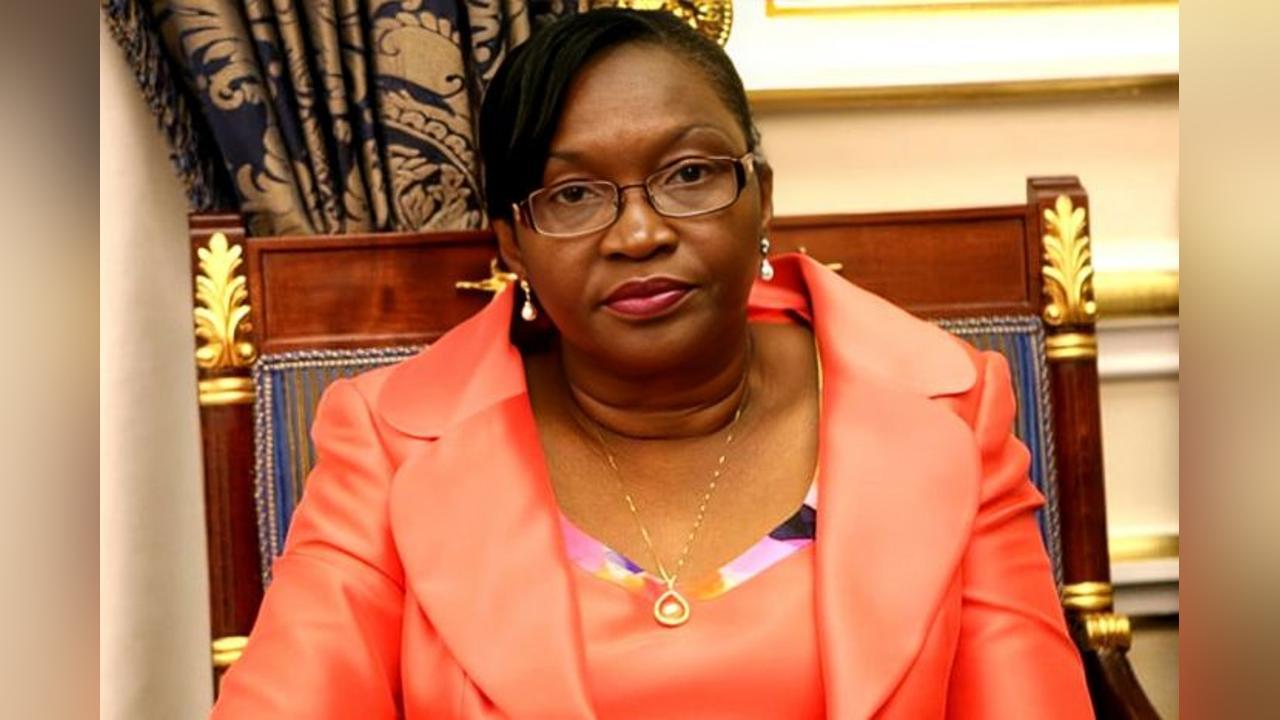Africa-Press – Angola. The former Minister of Fisheries, Vitória de Barros Neto, has been facing the Supreme Court (TS) since last Monday, 21st, although not yet on trial, but in the contradictory investigation phase of the accusation made by the Attorney General’s Office (PGR), which has investigated her since 2019 and accused her in a criminal case on suspicion of illicit enrichment with funds from the Angolan State, Novo Jornal learned from a judicial source.
The criminal proceedings involving the former Minister of Fisheries, initiated in December 2019 by the National Directorate of Investigation and Criminal Prosecution of the Public Prosecutor’s Office (DNIAP), an organ of the PGR, have been concluded and were sent to the Supreme Court for trial, after the end of the investigation and preparatory instruction phase.
According to a judicial source, the case is under judicial secrecy, but since the 21st, the contradictory investigation has been taking place in the Supreme Court, which remained silent on the matter when contacted by Novo Jornal.
The adversarial investigation is a normal phase in any criminal proceeding, during which the defendant tries to convince the judge that the prosecution is wrong, presenting his arguments and evidence. This phase results in whether or not the case goes to trial.
According to the source of Novo Jornal, the process takes place in the TS away from the press, at the request of the defendant, during this investigation phase.
Victória de Barros Neto is the target of a criminal case on suspicion of illicit enrichment with funds from the Angolan and Namibian states.
In 2019, the PGR stated that the criminal proceedings being processed at the DNIAP against the then MPLA deputy “due to suspicions of enrichment of monetary values belonging to the Angolan and Namibian States, resulting from the sale of fish in the joint coastal zone, during the period in which she held office”, were under investigation.
Victória de Barros Neto was Minister of Fisheries and the Sea in the governments of José Eduardo dos Santos (between 2012 and 2017) and João Lourenço, who reappointed her to the position and then dismissed her in January 2019.
On October 8, 2019, Novo Jornal reported, based on the newspaper The Namibiam, that the Namibian Anti-Corruption Commission (ACC) was investigating a deal involving fishing quotas worth 150 million Namibian dollars (at the time 9.9 million USD) allocated by the Windhoek Government to the Angolan Government, which were allegedly taken illegally by politicians from both countries.
The newspaper revealed that the case involved two Namibian ministers, both detained in the neighboring country and awaiting trial, and a former Angolan minister (Victória de Barros Neto), managers of Investec Asset Management, a multinational firm that manages investments and funds, and a Namibian company, the National Fishing Corporation of Namibia (Fishcor) and associates.
This investigation was developed, according to the newspaper, around an agreement that Angola and Namibia signed in 2014, and, allegedly, these politicians, with the involvement of accomplices, took possession of these fishing quotas worth almost 10 million US dollars, putting them up for sale at international market values.
The agreement in question, signed in 2014 between Namibia and Angola, had as one of the first areas of cooperation the formation of a joint venture and the allocation of fishing quotas to the so-called Namgomar SA Pesca, and which initially focused mainly on fishing for species such as horse mackerel, one of the most important species for the Angolan fishing sector and by far the species most consumed by the population.
This agreement included the delivery by Namibia to Angola of a quota of 25 thousand metric tons of horse mackerel between 2014 and 2016, which, according to this investigation, were sold in whole or in part on the markets to private fishing companies for the benefit of those involved, at an estimated value of 70 million Namibian dollars. In the period from 2016 to 2019, this value would be around 150 million.
For More News And Analysis About Angola Follow Africa-Press






